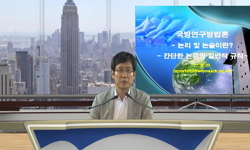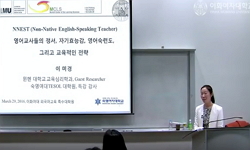The main purpose of this study is the nuclear feeling of hostility key psychological characteristic of people with a variety of viewing in terms of looks. In order to achieve the this study, researchers counseling cases are collectively qualitative si...
http://chineseinput.net/에서 pinyin(병음)방식으로 중국어를 변환할 수 있습니다.
변환된 중국어를 복사하여 사용하시면 됩니다.
- 中文 을 입력하시려면 zhongwen을 입력하시고 space를누르시면됩니다.
- 北京 을 입력하시려면 beijing을 입력하시고 space를 누르시면 됩니다.
https://www.riss.kr/link?id=A104224002
- 저자
- 발행기관
- 학술지명
- 권호사항
-
발행연도
2017
-
작성언어
-
- 주제어
-
KDC
100
-
등재정보
KCI등재
-
자료형태
학술저널
-
수록면
119-137(19쪽)
- 제공처
-
0
상세조회 -
0
다운로드
부가정보
다국어 초록 (Multilingual Abstract)
The main purpose of this study is the nuclear feeling of hostility key psychological characteristic of people with a variety of viewing in terms of looks. In order to achieve the this study, researchers counseling cases are collectively qualitative six case studies were analyzed using the methodology. As a result, the nuclear feeling of hostility are classified into six subjects as a common psychological characteristic of people with childhood family relationship experiences, a psychological response for a family, behavioral characteristic, response in work or study, reaction of interpersonal from emotional reactions. As a result, emotional reactions common to all cases were ashamed and embarrassed. The psychological responses to the family showed that the family members felt that they were ignorant of themselves and ignored them. These psychological responses were analyzed to be that they liked other siblings rather than oneself in their childhood family relations and not give interest and praise. The common behavioral characteristics of people with inferiority as core emotions were to worry about their inferiority and want to conceal their appearance. Also, I try to hide my true self from other people. There is a high degree of irrational belief that work or study is likely to end in failure. As a result, there was strong tendency that the activity was shrunk and the efficiency of the work was extremely degraded. In addition, the reaction in interpersonal relationships is also embarrassing to stand in front of others, so that their can not make own argument or say oneself opinion without being heard. Thus, they showed a passive attitude toward interpersonal communication and conflict resolution. Asa result, they were unable to express or communicate their emotions, and were feeling inferior in their minds alone. This experience is now being repeated in life there is, the nuclear feeling of unfair formed in childhood continue to suffer due to, respectively.
동일학술지(권/호) 다른 논문
-
중학생이 지각한 부모의 양육태도와 부모-자녀 간 의사소통 방식이 인터넷 게임중독에 미치는 영향
- 한국동서정신과학회
- 이상배 ( Lee Sang-bae )
- 2017
- KCI등재
-
화이트헤드의 과정철학적 관점에서 노자 도덕경 1장 해석
- 한국동서정신과학회
- 이태호 ( Lee Tae-ho )
- 2017
- KCI등재
-
샹키야 철학과 바가바드기따의 구나(Guna)에 관한 비교연구
- 한국동서정신과학회
- 곽미자 ( Kwak Mija )
- 2017
- KCI등재
-
동·서양 문화에 나타난 조화의 의미 - 한국문화의 조화를 중심으로 -
- 한국동서정신과학회
- 나채근 ( Ra Chae-kun )
- 2017
- KCI등재





 스콜라
스콜라





